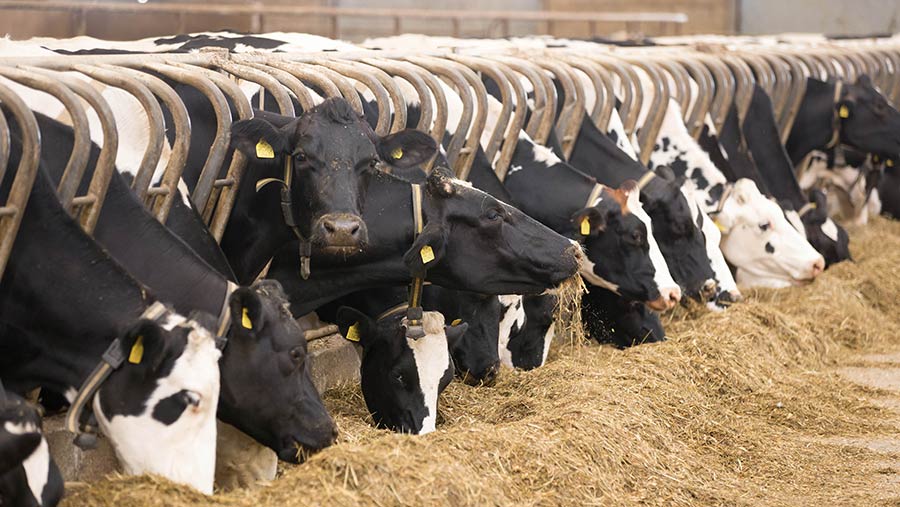This Week in Farming: Grumps, swathing and long-life cows
 © Tim Scrivener
© Tim Scrivener Hello and welcome to This Week in Farming, your weekly round-up of the best content from the FW website in the past seven days.
Here are five farming topics to chew over during your Coronation weekend, when you’ve done with staring at enough actual jewels.
Farmer confidence slumps
Fresh survey data from the NFU bolsters Farmers Weekly’s own research that dwindling confidence in the future is putting food production at risk.
Many farmers are not planning to invest in machinery, livestock or land in the next three years, heightening the challenge for domestic output to be maintained.
Yet cutting output is sometimes the way for an individual business to increase its resilience.
Take a look at what farmer Doug Wanstell has achieved by scaling back from a 1,900ha arable and poultry enterprise to a 360ha multi-enterprise business.
Is farmer grumpiness incurable?
Farmer gloom is of course nothing new. Most folk are much more comfortable acknowledging when they’ve had a bad time than a good time.
Is that down to a quirk of the British psyche though, or is it for sound agribusiness reasons?
In his opinion column this week, Stephen Carr ruminates on just that, pointing out that he has to be much brighter and breezier when talking about the prospects for his main diversification – a pub.
Also feeling grumpy this week: Lib Dem rural affairs spokesperson Tim Farron, who delivered an outspoken tirade about Defra’s farm policy in a Westminster Hall debate this week.
“How stupid and irresponsible to design a scheme meant to protect and enhance our environment but to deliver it to so badly that it does the exact opposite?” he asked.
Is an agricultural degree worth it?
Three or four years is an awfully long time – especially when you’re a teenager pondering whether to go to university.
With the UCAS application window soon to open, news reporter Matilda Bovingdon set to asking a slew of people across the industry whether it was worth forking out for that particular piece of paper.
It’s definitely true that some employers and landlords set store by it – although the owners of these two attractive blocks of land in Buckinghamshire and Lincolnshire may be looking for something completely different.
Every day’s a school day in farming
What is undeniable is that a successful farming career requires continuous learning – however it’s done.
One area where the dairy sector needs to find a way to improve is building longevity within the herd – with poor performance in this area a drain on a business from economic, genetic and environmental perspectives.
If your herd aligns with the national average, with nearly a fifth of first-time calvers not reaching a second lactation, then this piece on improving that figure should make interesting reading.
Meanwhile, on the north Norfolk coast, James Beamish – the head of farming at the Holkham Estate – has been on a learning curve as he attempts to manage the business with fewer synthetic inputs, including pesticides.
The estate’s owner, the Earl of Leicester, has challenged the farming operation to go “cides-free” by 2030 – that is, not using herbicides, fungicides or insecticides across the range of arable crops grown.
Few marks on skid rake
Had a puncture this week while rowing grass? That was one of the banes of Cotswold farmer Simon Best’s life, until two years ago, as he attempted to make perfectly timed hay for his picky equine customers.
That’s why he chose to chop in a wheeled machine for Pottinger’s centre-swath Top 842C with the quirky addition of plastic skid units in place of the regular rubber tyres.
Find out how he’s got on with the £24,000 machine.
FW Podcast
Coming up in this week’s edition of the Farmers Weekly podcast – as well as discussion of the latest hot topics in farming, there’s a chance to celebrate the coronation as we speak to some farmers who have met King Charles.
Listen here or bring us with you in the cab by downloading it from your usual podcast platform.
